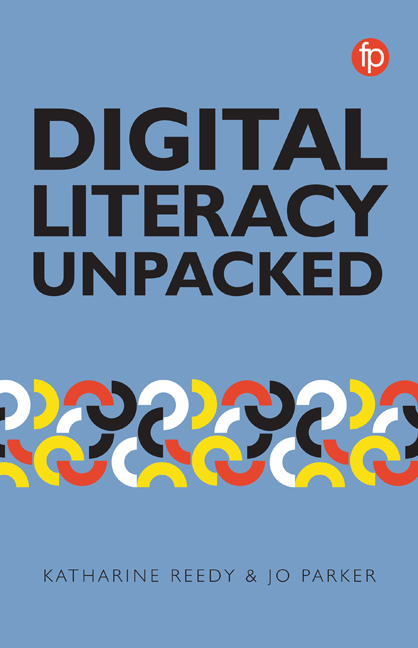Book contents
- Frontmatter
- Contents
- List of figures and case studies
- Foreword
- Notes on Contributors
- Introduction
- Part I Approaching Digital Literacy
- Part II Learning in a Digital World
- 4 Digital Literacy in UK and European Schools: Enhancing School Children's Motivation to Read for Pleasure
- 5 Digital Games: Providing Unique Digital Literacy Challenges in Childhood
- 6 Students in the SADL: Lessons From LSE's Digital Literacy Programme
- 7 Copyright and Digital Literacy: Rules, Risk and Creativity
- Part III Developing Staff Digital Literacies
- Part IV Digital Citizens and Workers
- Conclusion
- Index
6 - Students in the SADL: Lessons From LSE's Digital Literacy Programme
from Part II - Learning in a Digital World
Published online by Cambridge University Press: 24 September 2019
- Frontmatter
- Contents
- List of figures and case studies
- Foreword
- Notes on Contributors
- Introduction
- Part I Approaching Digital Literacy
- Part II Learning in a Digital World
- 4 Digital Literacy in UK and European Schools: Enhancing School Children's Motivation to Read for Pleasure
- 5 Digital Games: Providing Unique Digital Literacy Challenges in Childhood
- 6 Students in the SADL: Lessons From LSE's Digital Literacy Programme
- 7 Copyright and Digital Literacy: Rules, Risk and Creativity
- Part III Developing Staff Digital Literacies
- Part IV Digital Citizens and Workers
- Conclusion
- Index
Summary
Introduction
Student Ambassadors for Digital Literacy (SADL) was a student digital literacies programme that ran at London School of Economics and Political Science (LSE) from 2013 to 2016. This chapter provides an overview of the lessons learned during its three years. It draws on the evaluation work conducted at the end of each academic year to understand the impact of SADL and reflects on the approach taken and challenges faced. It also highlights several important issues that student partnership projects and digital literacy progammes need to address if they are to be successful. Although the programme ultimately did not continue and recruited relatively small numbers of students, the impact on the students who took part was considerable. The benefits to students who became senior ambassadors and worked alongside staff was particularly significant. SADL also influenced a number of other universities to set up similar digital literacy ambassador schemes and was highlighted by Jisc as an example of good practice in developing staff– student partnerships and in supporting student digital literacies (Jisc, 2016).
The programme was modified after the first two years and enhancements were made following feedback from the student participants and staff teaching on the programme. Devising the content of the course and engaging with students was one of the least challenging aspects of SADL. Student feedback on the format and content of workshops was highly positive and suggested they developed a range of skills through participating in the programme. However, one of the biggest challenges was justifying the resources required to sustain and make the programme scalable. This chapter highlights two important issues for others to address when working in this field:
• establish, scope and acquire the resources needed to ensure a programme is scalable beyond a small-scale pilot
• build evaluation into the programme and have jointly agreed measures of success with all project stakeholders.
These issues are explored in the chapter in the section ‘Challenges’ and should be of particular interest to those developing digital literacy programmes in further and higher education.
The institutional context
LSE is specialist, research-led university focusing on the social sciences, based in central London, with approximately 9000 full-time equivalent students. It has an international reputation for research with a relatively small undergraduate population (approximately 4500 students).
- Type
- Chapter
- Information
- Digital Literacy Unpacked , pp. 83 - 96Publisher: FacetPrint publication year: 2018

